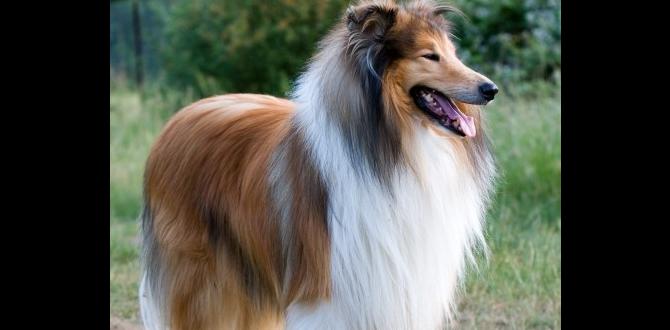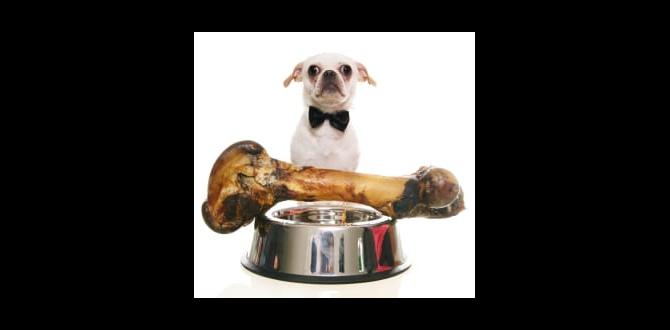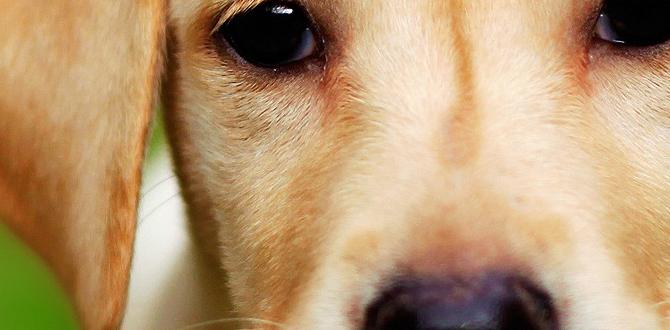Poodle Puppy Food: Best Hypoallergenic Diet
Finding the best hypoallergenic puppy food for Poodles is a crucial step in ensuring your furry friend grows up happy, healthy, and free from the common dietary sensitivities that can affect this intelligent and beloved breed. Poodles, known for their distinctive curly coats and keen minds, are also predisposed to certain allergies and digestive issues. This makes selecting the right nutrition a paramount concern for new owners. Opting for a meticulously chosen diet can significantly impact your puppy’s overall well-being, from coat shine to gut health, and ultimately, their long-term vitality.
The fundamental challenge with Poodles and allergies lies in their coat. While often lauded for being hypoallergenic to humans, they can, in fact, react to certain ingredients in their food just like any other breed. These reactions often manifest as itchy skin, ear infections, and digestive upset, which can be distressing for both the puppy and the owner. Therefore, understanding what constitutes a truly hypoallergenic diet is the first step towards a contented canine companion.
Understanding Hypoallergenic Puppy Food for Poodles
What exactly makes a food “hypoallergenic”? In simple terms, hypoallergenic formulas aim to minimize the presence of common allergens. These typically include common protein sources like chicken, beef, dairy, and eggs, as well as grains such as wheat, corn, and soy. Instead, hypoallergenic diets often feature novel protein sources and alternative carbohydrate bases that are less likely to trigger an adverse reaction.
For Poodle puppies, this means looking for foods that utilize ingredients like:
Novel Proteins: Think duck, lamb, venison, rabbit, or even fish like salmon or whitefish. These proteins are less commonly encountered in standard dog foods, reducing the likelihood of an immune system response.
Alternative Carbohydrates: Sweet potatoes, peas, potatoes, and oats are often used instead of wheat, corn, and soy. These are generally easier for dogs to digest and less likely to be allergenic.
Limited Ingredients: Many hypoallergenic foods follow a “limited ingredient diet” (LID) philosophy. This approach simplifies the food by including only essential nutrients and a single protein and carbohydrate source, making it easier to pinpoint and avoid specific triggers.
Added Omega-3 Fatty Acids: Ingredients rich in omega-3s, such as fish oil or flaxseed, are vital for Poodle puppies. These fatty acids help to reduce inflammation, promote healthy skin, and contribute to a lustrous coat, often combating the dryness and itchiness associated with allergies.
Probiotics and Prebiotics: A healthy digestive system is key to managing allergies. Probiotics (beneficial bacteria) and prebiotics (food for those bacteria) can help to rebalance the gut microbiome, improving nutrient absorption and reducing the inflammatory response that can stem from a compromised gut.
Choosing the Right First Food for Your Poodle Puppy
When selecting your Poodle puppy’s initial food, it’s wise to consult with your veterinarian. They can offer personalized recommendations based on your puppy’s specific health history and any suspected sensitivities. They might suggest a carefully formulated kibble or even a raw or home-cooked diet, though these require expert guidance to ensure nutritional completeness.
When examining puppy food labels, be a savvy shopper. Look beyond the marketing jargon and focus on the ingredients list. Prioritize foods with a named protein source as the first ingredient. Avoid artificial colors, flavors, and preservatives, as these can also contribute to sensitivities.
Consider the different life stages. Puppy food is specifically formulated with higher levels of protein, fat, and specific micronutrients crucial for growth and development. A balanced puppy formula will support strong bones, healthy organ development, and a robust immune system, all while being gentle on their sensitive digestive tracts.
Transitioning to a New Diet
Once you’ve identified a suitable food, the transition to a new diet should be gradual to avoid upsetting your puppy’s stomach. Over the course of 7-10 days, slowly increase the proportion of the new food while decreasing the old. Start with a 75/25 mix (old food/new food) and gradually adjust it until your puppy is exclusively eating the new hypoallergenic diet. Monitor your puppy closely during this transition for any signs of digestive upset, such as vomiting, diarrhea, or changes in appetite.
Long-Term Benefits of a Hypoallergenic Diet
Investing in the best hypoallergenic puppy food for Poodles is an investment in their future health and happiness. A well-tolerated diet can lead to:
Reduced Skin Irritation: Less itching, scratching, and redness, leading to a more comfortable puppy.
Healthier Coat: A shiny, well-maintained coat that is less prone to matting and dryness.
Improved Digestion: Smoother digestion leads to fewer instances of diarrhea, constipation, or gas.
Increased Energy Levels: When their body isn’t fighting off an allergic reaction, they have more energy for play and training.
Fewer Vet Visits: By proactively managing potential allergens, you can reduce the need for costly treatments for skin and digestive issues.
Choosing the right food is one of the most impactful decisions you’ll make for your Poodle puppy. By understanding the nuances of hypoallergenic nutrition and being diligent in your selection, you can lay the foundation for a lifetime of good health and companionship.
Meet Elyse Colburn, the devoted canine companion and storyteller behind the enchanting world of “Tales, Tails, and Adventures Unleashed.” A passionate dog enthusiast with a heart full of paw prints, Elyse Colburn shares heartwarming tales and insightful adventures, celebrating the joy, loyalty, and endless antics that make every dog a true hero. Join Elyse Colburn on this tail-wagging journey, where every post is a love letter to our four-legged friends.






